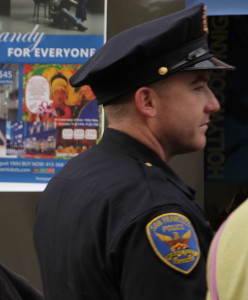
Anyway, on December 21, it occurred to me to make experimental requests for innocuous records to various police departments around the state and then, depending on the results, write to the Los Angeles Police Commission about how other cities around California are, somehow, able to abide by the law. I abandoned that aspect of the plan because, as fate would have it, the very next day a bunch of people sued the LAPD over their flouting of the Public Records Act, obviating the need for any letters from me. But the requests were still out there, so I let them ride.
Berkeley and Long Beach still have failed to acknowledge my requests, even though it’s been 24 days since I sent them. This is in spite of the fact that Berkeley has a city-wide guide to CPRA requests and a far-reaching open government ordinance. The difference between Berkeley PD’s nonresponsiveness and the LAPD’s is that Berkeley has an administrative procedure to encourage city departments to follow the law whereas Los Angeles has nothing of the sort. I’m not going to go that route because I don’t have time, but it’s nice to know it’s there. I don’t know exactly what’s up with Long Beach, but have no plans to press them.
However, the City and County of San Francisco, which also has a sunshine ordinance (the League of Women Voters thinks it was the first such municipal statute), followed the law scrupulously (with one minor lapse). I asked for the last 100 emails between the SFPD and the Union Square BID. And here is what they sent. They didn’t supply them in the native format I requested, which they’re required to do by law, but even here they did better than the LAPD. I’ll describe the interesting formatting compromise they (unilaterally) made after the break. Again, LAPD and the rest of the City of Los Angeles have a lesson they could learn from this.
Continue reading San Francisco Police Department Fulfills Experimental CPRA Request in 23 Days (!) and Provides Emails in an Actually Almost Usable Format
